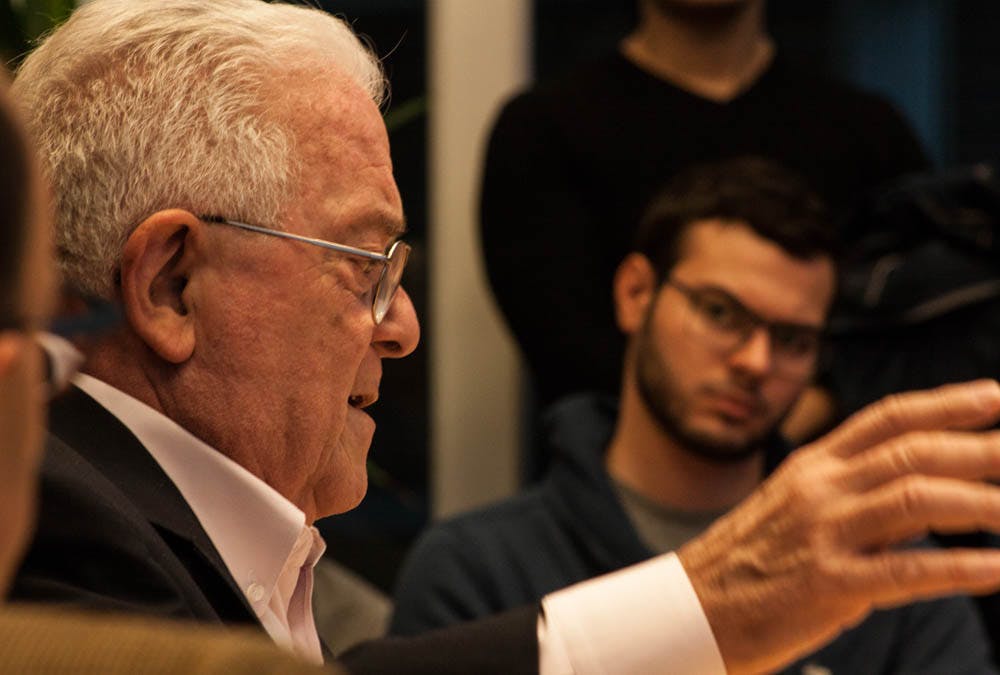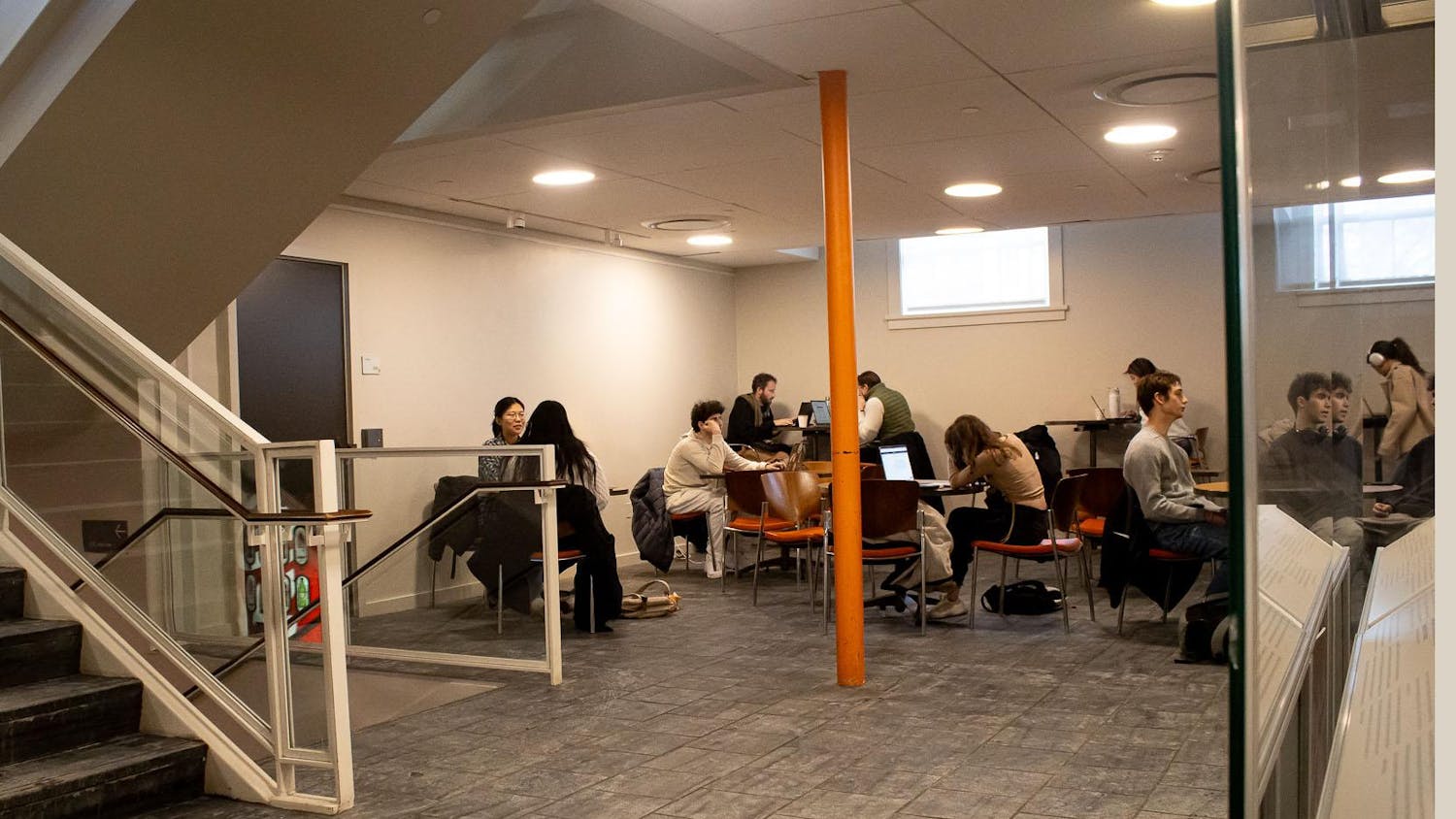“It used to be a lot of fun to talk about U.S.-China relations, … but now here we are,” joked Senior Fellow in International and Public Affairs Chas Freeman during his talk at the Watson Institute for International and Public Affairs last night. During his lecture, Freeman highlighted the complexity of the relationship between the United States and China, citing past diplomacy between the two nations to predict future relations.
Freeman previously served as principal interpreter during former president Richard Nixon’s visit to Beijing in 1972, a diplomat in Bangkok and Beijing during the Reagan administration, ambassador to Saudi Arabia during the first Bush administration and Assistant Secretary of Defense during the Clinton administration.
Freeman started his talk by categorizing political relationships between nations and emphasizing the importance of precise vocabulary in understanding international relations. Freeman outlined the categories of “cooperative relations” as “alliance, entente, protectorate, compliant state and cooperative transactionalism.” The “antagonistic side of the spectrum” includes “enemy, adversarial antagonism, rivalry and competitive transactionalism,” Freeman said.
Though Freeman acknowledged that relations between the United States and China have been strained since 2010, he partially attributed growing tensions between the two nations to anti-China rhetoric promoted by President Trump. “The Trump administration has now taken the significant step beyond rivalry into adversarial antagonism,” Freeman said.
According to Freeman, relations between the United States and China throughout history can be characterized by all the general categories, excluding “alliance.”
Freeman briefly touched upon the Clinton administration’s attempt to “coerce the restructuring of human rights practices in China by linking them to improved access to the U.S. market.”
This is representative of a greater pattern of seeking to “Americanize” China and express “pious hope for its democratization” without taking the actual steps to do so, Freeman said. “At no point did America put its money where its mouth was.”
Many American “elites … continue to justify their support of engaging with China in ideological rather than strategic terms,” Freeman said. But “China’s failure to fulfill American ideological expectations now inspires claims that Sino-American relations have always been abusive.”
The current administration in particular has furthered “absurdist” claims about China that are not based in fact, Freeman said. These inaccuracies stem from Trump’s placement of policymaking “in the hands of fringe figures with hyper-nationalist obsessions,” Freeman said.
Though many political experts criticize Chinese foreign policy, Freeman argued that this is ultimately hypocritical; for example, the United States “abruptly withdraws from international agreements,” engages in trade wars, imposes sanctions and ignores U.N. charters.
China is rapidly advancing industrially and economically, so it is in the United States’ best interest to cooperate with them, Freeman said. He added that a lack of collaboration could have negative consequences for U.S. “technological production.”
Though the Trump administration views the United States as central to the global economy, Freeman believes that China is the most sought after trading partner currently. If Trump were to impose sanctions on China, Freeman said, the country would still remain the “fastest growing market in the world.”
Aside from the economic incentives, China’s improvements in equality and social justice for its citizens “inspire foreign admiration,” creating a moral and ideological incentive to engage in trade with China rather than the United States, Freeman said.
As China continues to grow, and the Trump Administration distances itself further from the nation, opposition to U.S. policy will only heighten, Freeman warned. This is detrimental to both nations, particularly in time-sensitive issues such as climate change. A positive relationship between the United States and China is a “mutually advantageous one,” Freeman concluded.
Third-year Chinese exchange student Bin Cheng Zeng attended the lecture because she was interested in gaining a new perspective on the topic. She believed that U.S.-China relations are particularly complex because they involve “economic, political and ideological differences.”
Harvard student Gabriello Adler traveled from Boston to attend Freeman’s lecture after hearing him speak previously at the Harvard Kennedy School. Adler was especially impressed by how Freeman “provided insight on ways to describe U.S-China relations.”





